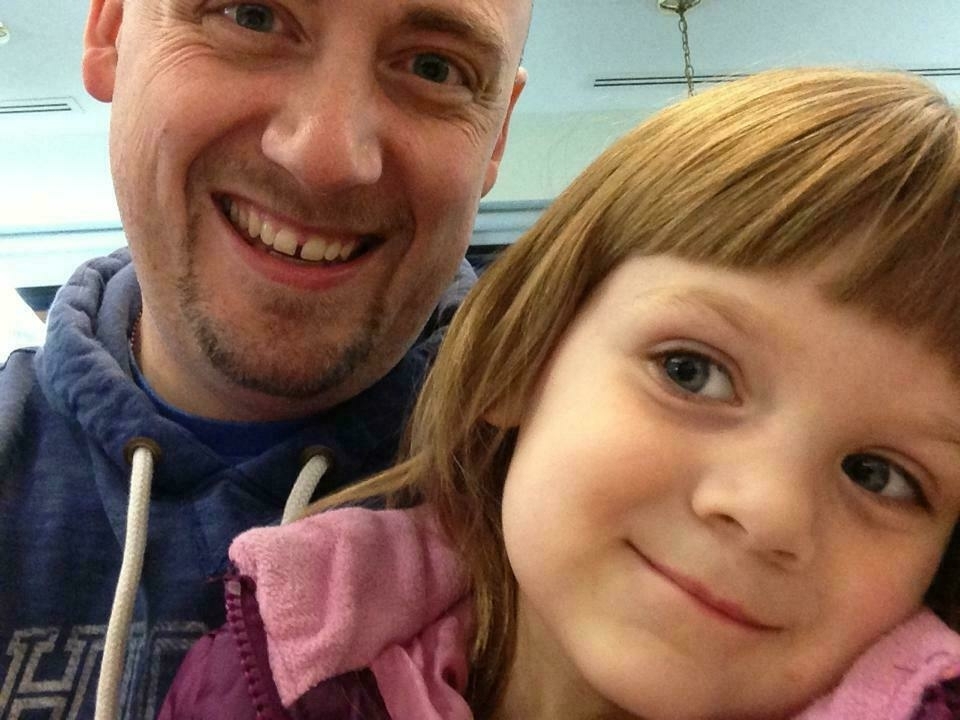Category: Longform
You are viewing all posts from this category, beginning with the most recent.
Facing the truth about ourselves
Andrew Peterson has a beautiful piece up at The Rabbit Room today. He reflects on his discomfort at answering personal questions on a doctor’s questionnaire, and the dichotomy between what he wants to think he is and what he actually is.
But you see, the story we tell ourselves is skewed. There comes a time when we need to sit and take account of how we’re spending our lives, like at the doctor’s office or with the budget, and be reminded that we are not who we think we are. We need Jesus more than we allow ourselves to admit. We are not really so much better than the people around us whose lives are so obviously messy. In fact, we’re not better at all. They may in fact be closer to the heart of Jesus because they are humble enough to admit to themselves that they need help, humble enough to answer the hard questions about their weakness boldly.
You should really read the whole thing.
Telling the Tales of the Scarring War with Sin
Songwriter and singer Jennifer Knapp answered questions over on Rachel Held Evans’ blog this week, and in the midst of it all she offered up a devastatingly spot-on critique of Christian Contemporary Music (CCM) and how it reflects the attitude of the evangelical church:
In this sense CCM reflects our Christian culture very well. It is our Christian culture to invite those to tell only the story of victory and spare the gruesome details of the scarring war. We can reside if we are made clean and presentable, those who are still writing their story must wait for absolute victory before they can share it with others.
I don’t know about you, but from my experience, she’s right on.
When we hear testimonies in church, or smaller gatherings like men’s groups or (I would assume) women’s groups, etc, the stories we are told are only, as Jennifer calls them, “stories of victory”. How someone battled their demons, their besetting sin, and hallelujah, with Jesus’ help they came out victorious.
And sure, it’s encouraging. Stories of victory provide hope that there is victory to be had.
But when was the last time you heard a testimony that said “I don’t want to do this sin, but I did it again this week. So I’m repenting again and I’m going to God for grace.”?
Let’s go even further. If, by some odd happenstance, someone does confess struggles with sin in a church meeting, what gets confessed is a “respectable” sin. Pride. A bad attitude. Shortness with a spouse. Failure to have a regular quiet time.
Have you ever heard a testimony where someone confessed an ongoing, painful struggle with alcohol, or pornography, or anger, or financial honesty? Not a story of victory, but a story of the pain of the “scarring war”? I never have.
Here’s what I think this means:
We don’t really believe in the gospel of grace and forgiveness.
Sure, we give it lip service. But what good is the message of grace and forgiveness when the only time we acknowledge it is for stories of victory, for people who have experienced absolute victory?
Yes, Jesus said “Go and sin no more”. We put fancy words on it and call it “progressive sanctification”. But sanctification will progress at different rates sometimes. One brother may experience a sudden change and never go back to drunkenness; another may fight the bottle his whole life. To only affirm and share the stories of the former is tacit acknowledgment that what we really value is not the grace but the works.
I can hear some objector ready to quote me Romans 6:1. “Shall we continue in sin that grace may abound? May it never be!”
Here’s the thing: we will all continue in sin for the rest of our lives. For some of us it’ll be the same sin. Others will retire old sins only to find and wrestle with new ones. We don’t want to, but we will. See Romans 7.
But when we silence the stories of the ongoing, painful, scarring battle, we are hampering the bountiful endowment of grace.
In God there is an abundance of grace. Powerful. Rich. Saving. Free. Not designed only for those who have already cleaned up their act.
Let’s not do anything to withhold it.
A year off the Internet
Tech writer Paul Miller spent a year unplugged from the internet, and returns today to share his insights.
Paul reports that while the first few months disconnected were freeing and encouraged him to read more deeply, write more, and do more recreational activities, what he found after several months went by is that this “freedom” wasn’t all he had thought it might be.
It’s hard to say exactly what changed. I guess those first months felt so good because I felt the absence of the pressures of the internet. My freedom felt tangible. But when I stopped seeing my life in the context of “I don’t use the internet,” the offline existence became mundane, and the worst sides of myself began to emerge.
I would stay at home for days at a time. My phone would die, and nobody could get ahold of me. At some point my parents would get fed up with wondering if I was alive, and send my sister over to my apartment to check on me. On the internet it was easy to assure people I was alive and sane, easy to collaborate with my coworkers, easy to be a relevant part of society.
So much ink has been spilled deriding the false concept of a “Facebook friend,” but I can tell you that a “Facebook friend” is better than nothing.
Paul says that while he thought he might find his “real” self disconnected from the Internet, instead he realized that his “real self” and his online interactions were rather inextricably linked.
He relates a conversation with a young relative during a recent visit:
My last afternoon in Colorado I sat down with my 5-year-old niece, Keziah, and tried to explain to her what the internet is. She’d never heard of “the internet,” but she’s huge on Skype with the grandparent set. I asked her if she’d wondered why I never Skyped with her this year. She had.
“I thought it was because you didn’t want to,” she said.
With tears in my eyes, I drew her a picture of what the internet is. It was computers and phones and televisions, with little lines connecting them. Those lines are the internet. I showed her my computer, drew a line to it, and erased that line.
“I spent a year without using any internet,” I told her. “But now I’m coming back and I can Skype with you again.”
In the end, Miller has decided, being connected with those he loves is more important than whatever “freedom” his technological disconnection provided.
Miller’s story highlights many of the concerns that have gone through my head whenever I have considered “unplugging” in some way or another. Yes, I might gain back some “free time”. Yes, I might be better able to sit down and read 200 pages at a single go instead of 20. (Wait, I have 3 small kids - what am I thinking? 200 pages is a pipe dream.)
But my friendships and social interactions over the past decade have been hugely influenced and enabled by technology. I’ve made friends over Twitter, and blogs, and forums; people that aren’t just ‘creepy internet friends’ but that have become real, embodied friends when we’ve had the chance to meet in person.
So when I think of disconnecting the way Paul Miller did, the first word that comes to my mind is “lonely”. Which means, for better or worse, I’m going to be staying connected.
New-to-me Music Monday
We made a family trip to the library yesterday, and as usual I came home with a pile of books and media beyond what I am ever to get through in the three weeks I’m allowed to borrow them. I did, however, manage to work my way through the four new (to me) CDs that I borrowed.
In the order I listened to them at work today:
Loaded - The Velvet Underground.

I’d never listened to The Velvet Underground before today. I found them enjoyable in that early 1970’s rock-and-roll way. Nothing too profound, but very listenable.
Chamber Music Society - Esperanza Spalding.

Jazz, anybody? Spalding is another new artist to me, and wowza. The woman plays bass and holy cow can she sing. Fantastic jazz. This one is a keeper.
Live at Leeds - The Who.

I’m typically a fan of live records, but this one didn’t really grab me. Maybe I’m not enough of an aficionado of The Who. I dunno. Turned this one off about four tracks in. Really couldn’t bring myself to care.
Vampire Weekend - Vampire Weekend.

I’ve owned Vampire Weekend’s Contra for a couple of years now and enjoy it OK. But when I heard my friend Dan complain a while back (on some social media - can’t remember which or when) that he hated Contra and hoped that VW’s new record would be more like their older stuff, I took a mental note to explore their other stuff.
And (no real surprise here) Dan was right. This eponymous record is, on first listen, far superior to Contra. Less frantic, more interesting melodies and instrumentations. I wish they wouldn’t drop the F-bomb - makes it less friendly for playing when the kids are around - but on the whole, yeah, this one bears multiple listens as well.
Thus ends Chris’s random update on new (to me) music.
Graffiti vs. real change
Matt Chambers has a piece up today in light of this week’s ongoing arguments about gay marriage, and this paragraph jumped right off the screen:
As it is, we, as Christians / Christ-followers / Believers / Born Agains / [insert latest trendy religious title here], seem to be much more comfortable trying to find a way to use all our energies up in plastering the kingdoms of the world with graffiti that says, “heaven” than actually pouring ourselves out to see God’s will on earth as it is in heaven.
Trouble is, graffiti doesn’t fool anyone.
Boom.
Celebration is a craft I need to learn
Sarah Clarkson has a beautiful post over on The Rabbit Room today about, as she says, “the grave importance” of celebrations, and how they remind us that God cares for our joy - not just the joy that we find from spiritual hope in the midst of trouble, but also in the fully-embodied, rollicking joy of song, food, and friendship.
Satan, I think, strikes a few of his best blows when he can persuade us that God is boring. That life with our Savior is a dull and dutiful upward climb toward a summit of righteousness always a little out of reach. We are close to defeat when we start to believe that God cares nothing for joy, that holy people are wage slaves to long days of righteousness. Work, pray, endure, and pay your bills, check off that list of upright deeds. And the image of God in our weary minds becomes that of a long-faced master whose only concern is our efficient goodness. We forget that we are called to a King who laughs and creates, sings and saves. That our end is a kingdom crammed with our heart’s desires. We forget that our God is the Lord of the dance and the one whose new world begins with a feast.
Vatican City is not what you think it is...
There’s a fascinating post up on the Strange Maps blog this morning about Vatican City and the Holy See. Vatican City, it seems, is not exactly what you think it is.
So Vatican City is not what you think it is. It is not the diplomatic interface between the Catholic Church and the rest of the world. That role is played by the Holy See, which exchanges ambassadors with most of the world’s countries (rather than Vatican City). Rather, Vatican City is the toehold of sovereign territory that gives the papacy its peace of mind: the territorial buffer shielding the Church’s sovereignty rather than the essence of that sovereignty.
It then follows up with a bunch of interesting maps detailing the geographic boundaries of the tiny Vatican City (only 1/6 of a square mile in area!).
An interesting read.
[Strange Maps: Bigger Than You Think: the Vatican and its Annexes]
Happy birthday to KP!
It’s March, which means the birthdays come fast and furious at the Hubbs house. Today the youngest member of our household isn’t quite so young. Katie P turns 4 today! This little sweetie never slows down for long… guess that’s what happens when you have two big sisters to keep up with.

Today we will celebrate with lunch at her favorite place… nuggets (and maybe ice cream!) at Chick-Fil-A.

Happy Birthday to the AG

Seven years ago today, in the dark of the early morning, Addison was born. This young lady is so special… a free spirit in a house full of engineers who has a built-in wiggle that won’t let her sit still when there’s music going.

She’s wildly creative (that’s a ‘boom box’ she created) and has the most delicious random thoughts. (The other day: “Mom, if you return library books early, does the library pay you money?”)
Hard to believe this awesome girl is now seven years old. We love you Addie Grace!

Richard Beck on Holiness and Hospitality
…the pursuit of moral purity often undermines the life of welcome as “sinners” and the morally “unclean” tend to be shunned and excluded. The church stories we all could share illustrating this dynamic would provide ample evidence of the dynamics Unclean [Beck’s recent book] was trying to describe.
So what’s the trick? How are we to pursue holiness in a way that makes us more hospitable rather than less?
I think a part of the trick is this: holiness is a first-person rather than a third-person enterprise. Holiness is a personal rather than public affair.
I think he’s on to something.
[Experimental Theology: Finely Tuned Instruments of Welcome]